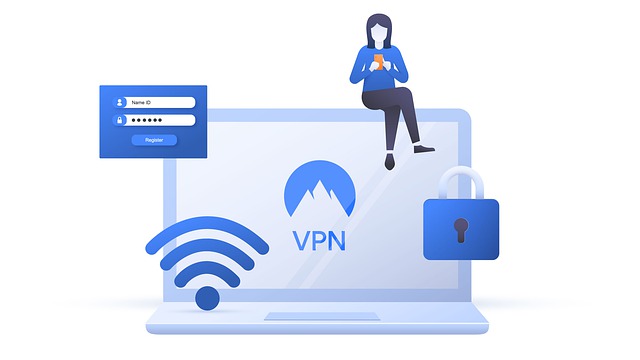How to Protect Yourself on Public Wi-Fi Using a VPN
Public Wi-Fi can be convenient, but it’s also risky. If you’re not careful, you could end up with a stolen identity or an infected device.
The good news is that there’s a simple way to protect yourself when you’re on public Wi-Fi: use a Virtual Private Network (VPN).
In this blog, we’ll explain what a VPN is, how it works, and how you can use it to protect yourself on public Wi-Fi.
What is a VPN?
A Virtual Private Network (VPN) is a tool that encrypts your internet connection and hides your online activity from prying eyes.
When you use a VPN, all of your internet traffic is routed through a secure, encrypted tunnel, making it difficult for anyone to intercept or steal your data.
VPNs are especially useful when you’re on public Wi-Fi, as they help to keep you safe from hackers and other malicious actors.
How Does a VPN Work?
When you connect to a VPN, your device establishes a secure connection to a server run by the VPN provider.
All of your internet traffic is then routed through this server, rather than your device’s normal internet connection.
The VPN server acts as a middleman between your device and the internet, encrypting all of your data and hiding your online activity from others.
This encryption makes it much more difficult for anyone to intercept your data or steal your information.
Even if someone does manage to intercept your data, they won’t be able to read it because it’s encrypted.
And because your internet traffic is routed through the VPN server, your online activity is also hidden from your internet service provider (ISP), making it difficult for them to monitor what you’re doing online.
Why You Should Use a VPN on Public Wi-Fi
Public Wi-Fi is convenient, but it’s also incredibly risky.
When you’re on public Wi-Fi, you’re connecting to a network that’s shared by many other people, which makes it easier for hackers and other malicious actors to steal your information.
In fact, public Wi-Fi is one of the most common ways for hackers to steal sensitive information, such as login credentials, credit card numbers, and personal information.
One of the biggest risks of using public Wi-Fi is that it’s often unencrypted.
This means that anyone who is on the same network as you can easily intercept your internet traffic and steal your information.
In addition, public Wi-Fi networks are often poorly secured, which makes it easier for hackers to gain access to the network and steal your information.
Another risk of public Wi-Fi is that it’s often vulnerable to Man-in-the-Middle (MITM) attacks.
In a MITM attack, a hacker intercepts your internet traffic and uses it to steal your information or infect your device with malware.
This can be especially dangerous on public Wi-Fi, as the attacker may be able to intercept sensitive information such as login credentials or credit card numbers.
How to Use a VPN on Public Wi-Fi
Using a VPN on public Wi-Fi is simple and straightforward.
Here are the steps you need to follow to get started:
Choose a VPN provider:
There are many VPN providers to choose from, and each one offers different features and pricing plans.
Take the time to research your options and choose a provider that meets your needs.
Download and install the VPN software:
Once you’ve chosen a VPN provider, download and install their software on your device.
Connect to a server:
When you launch the VPN software, select a server and click the “Connect” button.
Start using public Wi-Fi:
Now that you’re connected to the VPN, you can start using public Wi-Fi with confidence.
Your internet traffic will be encrypted and hidden from others, and you’ll be protected from hackers and other malicious actors.
It’s important to note that using a VPN can slow down your internet connection slightly, as all of your data is being routed through the VPN server.
However, the added security is worth the minor performance hit.
Conclusion
Public Wi-Fi can be a convenient way to access the internet, but it’s also incredibly risky.
By using a VPN, you can encrypt your internet connection and protect yourself from hackers, malicious actors, and other security threats.
Whether you’re at a coffee shop, a library, or an airport, a VPN will keep you safe and secure while you’re on public Wi-Fi.
So, if you’re looking for a simple and effective way to protect yourself when you’re on public Wi-Fi, consider using a VPN.
